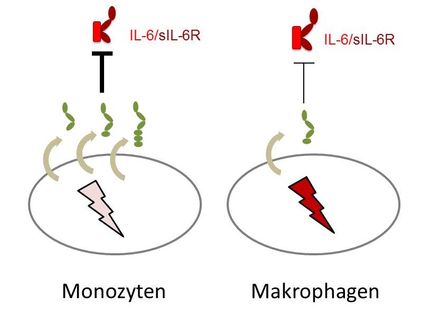Roche: Phase III study evaluating ocrelizumab in patients with rheumatoid arthritis meets primary endpoint
Roche and Biogen Idec announced that SCRIPT (WA20495), a Phase III trial evaluating ocrelizumab, compared to placebo, as a treatment for seropositive rheumatoid arthritis (RA) patients with a previous inadequate response to at least one anti-tumor necrosis factor (TNF)-alpha therapy, met its primary endpoint.
The study shows that patients treated with ocrelizumab in combination with non-biologic disease-modifying antirheumatic drugs (DMARDs) achieved the primary endpoint of an improvement in signs and symptoms of RA (ACR20 response) at week 24 and at week 48, compared to those treated with placebo.
While overall adverse events were comparable between ocrelizumab and placebo treatment groups, a higher percentage of serious infections, including opportunistic infections, was observed in the ocrelizumab treated patients. Detailed safety analyses from the study are ongoing. Full results from the SCRIPT study will be made available to the medical community once the analyses are complete.
“RA is a severely debilitating disease which causes painful inflammation of the joints and can lead to deformity and disability. We remain committed to continuing evaluation of the ocrelizumab data in order to further assess the future of the RA program,” said Hal Barron, M.D., executive vice president, Global Development and chief medical officer, Roche.
“SCRIPT is an important study that advances our understanding of the safety and efficacy of ocrelizumab in RA. We are committed to developing new treatment options for RA and will use our learnings from this study to guide current and future development efforts,” said David Hagerty, M.D., Vice President and Chief Medical Officer, Rheumatology, Biogen Idec.
Roche and Biogen Idec have suspended dosing in the ocrelizumab RA program. This decision followed a recommendation from the independent ocrelizumab RA & Lupus Data and Safety Monitoring Board (DSMB). The DSMB concluded that the safety risk outweighed the benefits observed in these specific patient populations at that time based on an infection related safety signal which included serious infections, some of which were fatal, and opportunistic infections. Subsequently, the U.S. Food and Drug Administration (FDA) placed the RA studies on clinical hold. No cases of Progressive Multifocal Leukoencephalopathy (PML) have been observed in ocrelizumab treated patients in any study to date.
A detailed analysis of all of the ocrelizumab data is being conducted to inform the future of ocrelizumab in the treatment of RA.
Most read news
Other news from the department research and development

Get the life science industry in your inbox
By submitting this form you agree that LUMITOS AG will send you the newsletter(s) selected above by email. Your data will not be passed on to third parties. Your data will be stored and processed in accordance with our data protection regulations. LUMITOS may contact you by email for the purpose of advertising or market and opinion surveys. You can revoke your consent at any time without giving reasons to LUMITOS AG, Ernst-Augustin-Str. 2, 12489 Berlin, Germany or by e-mail at revoke@lumitos.com with effect for the future. In addition, each email contains a link to unsubscribe from the corresponding newsletter.





















































